Source: From a Presentation by Abiyu Geleta, Oromo Studies Association Conference of 2002 in Washington, DC.
I. Introduction
This is a brief account of major issues and outcomes of a decade of negotiations between the Oromo Liberation Front (OLF) and the Tigrean People’s Liberation Front (TPLF) since 1991. In those negotiations, there were always third parties involved in one form or another. Third party intervenors will be mentioned, if anything, for the purpose of identifying the structure of the negotiations. I will not attempt to analyze the dynamic process of the negotiations between the OLF and the TPLF. How far the primary parties had been cooperative or strident antagonists as negotiating partners is not considered in this account. My focus is to indicate major issues, outcomes and shifts in the issues and structures of the negotiations with changing situations.
Tacit as well as formal negotiations between the OLF and TPLF as national liberation forces had been ongoing matters even before 1991. In this paper, the year 1991 is taken as a benchmark for an obvious reason. It was the beginning of negotiations of issues of the highest state affairs–state succession and state formation–between the two parties.
II. The London Conference
The OLF and TPLF concluded an agreement on September 26, 1990 regarding a matter directly concerning state-formation. Since the agreement had direct linkage with subsequent events considered in this paper, it is necessary to show its significance as a prelude to those events. At the time of the agreement, the Dergue regime was falling apart and the Eritrean People’s Liberation Front (EPLF) was almost in full control of Eritrea.
On the issue of the right of self-determination, the agreement says: “… the exercise of the right shall be through a democratically held referendum and the choice of the concerned people between formation of their own state or joining with others in a union shall be respected”. The agreement also shows that the two parties had differences of priority:
“The TPLF believes that under favorable conditions whereby the oppressor state apparatus is completely dismantled and the interests of all peoples are safe-guarded, it is mutually advantageous for the Oromo and others in the Empire state to form a larger entity or democratic unity and thus democratic organizations should work as a priority to achieve this objective.
“The OLF reiterated its commitment to the necessity to agitate for the Oromo people’s national identity and independence as a matter of priority and sees the commitment to unity with other peoples as a process that can be developed in the course of practical cooperation with each other on matters of common interest and confidence building measures.
“The difference of opinion on the priorities of the two organizations is left open to future discussions. Both organizations believe that the differences shall not hinder practical cooperation between them. The cooperation shall be based on the common understanding on the resolution of the question of the right of self-determination through democratically held referendum”.
Considering the above-cited terms of the agreement, the big question is how to safeguard the fundamental interests of respective peoples while seeking mutual advantages. Generally, there are several possible ways that peoples can drive advantage by getting locked up in unity. A nation may have sea-access and others landlocked; some may be resource-rich and others resource-hungry. The advantages are obvious. The issue is how to make those advantages mutually beneficial. According to the agreement, it is up to each concerned people to decide through referendum what is to their best advantage. Evidently, the genuine interest of the people depends on the integrity of the process by which the decision is made. However, TPLF’s priority to work for unity in effect claimed vested interest in the decision of the Oromo and other peoples for the advantage of the people of Tigray. Based on the claimed interest, it organized the Oromo People’s Democratic Organization (OPDO) out of Oromo prisoners of war captured from the Dergue army. The obvious objective was to affect the integrity of the Oromo people’s decision by using the OPDO as leverage.
The OLF did not accept interference by the TPLF to affect the integrity of the decision process of the Oromo people. In particular, the two parties stated in their agreement that they had differences of opinion regarding the creation and objectives of the OPDO. OLF’s priority implicitly suggested mutual noninterference in the internal affairs of one another when it proposed developing unity in a process of practical cooperation on matters of common interest.
The September agreement is significant for its articulation of the options available in the exercise of the right of self-determination. The parties identified their differences regarding various aspects involved in the process of exercising the right. They agreed to hold “future talks to arrive at mutually acceptable programmes” and “to call for a conference on the matter in which all interested parties participate”.
The OLF, EPLF, TPLF, and the Dergue regime met in May 1991 in London in the presence of Mr. H. Cohen, the US Assistant Secretary of State for African Affairs, to negotiate peace settlement. Actually, there never was much of a negotiation that took place in this encounter. The Dergue regime was in total disarray and was not in a position to negotiate even terms of surrender for its forces and officials. The EPLF had practically won the Eritrean liberation war. The TPLF troops were at the gate of the capital city. The OLF could not influence the outcome of the meeting. The US government endorsed the TPLF to march into the city, to form an interim administration and call a conference within three months to seek a mechanism for a democratic solution of the political situation in Ethiopia. As cited above, an understanding was already reached in the September Agreement to call a conference with broad-based participation. To confirm his government’s commitment to a political change in Ethiopia, as well as to provide incentives for the change, Mr. Cohen pronounced the US policy of “no-democracy-no-assistance”.
III. Negotiation of the Charter of July 1991
A few days after the London Conference, the TPLF entered Finfinne (Addis Ababa) and established an interim administration. It was a moment when the Ethiopian empire-state was in limbo–without a constitutional system and without institutions to define its characters and to defend its sovereignty. The armed forces and the security apparatus as well as other state institutions were dismantled. The TPLF was not in full control of the empire. There were areas in the Oromo-land where the OLF or local populations had full control.
The OLF leadership entered Finfinne and resumed negotiations that were initiated at the time of the September Agreement (1990) regarding the calling and holding of a conference. From the outcome of the London encounter–as well as by virtue of being in charge of the Interim Administration–the TPLF asserted the right to organize the intended conference. After extensive negotiations between the OLF and TPLF on a draft document to be submitted to an upcoming conference, a preliminary understanding was reached on a draft that defined principles and mechanisms for resolving the central issues of self-determination during a period of transition. The OLF and the TPLF were to attend the conference as coalition partners.
Regarding the issue of determining participants of a conference, it was not clear whether and how far it was subject to bilateral negotiation between the OLF and the TPLF. The issue was important, since a multiparty negotiation afforded formation of coalitions among the parties as demonstrated by subsequent events.
The TPLF had exclusive control over the bureaucracy and other resources of the ousted regime. That meant, even if “addition” and “subtraction” of conference members were subject to negotiation, the TPLF had a stronger bargaining power than the OLF. It was not evident at the time–although it became obvious later–that the TPLF used the power in its favor to build and to break other coalitions to achieve its agenda for the “Oromo and others in the Empire state”. From the outset, it was clear that the two parties were not on the same wavelength. The OLF was trying to honor its pledge to promote “practical cooperation” among peoples during the transition as confidence building measures to give democratic unity a chance. The spirit of cooperation was not reciprocated by the TPLF that was focused on exercising its power to impose its own recipe for unity.
When the conference was convened in the first week of July 1991, representation of the Oromo people in the conference was fragmented into five often-fractious forces–the OLF, IFLO, UOPLF, Abbo, OPDO. The TPLF attended the conference as a strong force that herded surrogate parties created from POWs of Oromo and Amhara origin–the OPDO, EPDM and Officers’ Group. Political groups from other nations–some newly created with the assistance of the TPLF for the occasion–as well as minor multi-national groups and individuals were selected by the TPLF to attend the conference. Those notably excluded from the conference were the Ethiopian Peoples’ Revolutionary Party (EPRP), the All-Ethiopia Socialist Movement (AESM/MEISON), and Workers’ Party of Ethiopia (WPE). The addition and subtraction of members of the conference enhanced the political influence of the TPLF.
Major Issues and Outcomes of the July Conference for the OLF and TPLF
The conference was held in Finfinne from July 1 – 5, 1991 in the presence of international observers. Its focus was on the following main issues:
Principles for resolving issues of the right of self-determination of dependent peoples;
Issues of democratic governance;
Mechanisms of exercising the rights of peoples and individuals.
The system approved by the Conference was issued in a form of a document known as the July Charter. The Charter recognized that all peoples in Ethiopia have the “right of self-determination of independence”. The parties in the Conference agreed that the Charter was the supreme law of the transitional period. The Charter upheld the right of every people to administer their own affairs within own defined territory in accordance with laws consistent with the Charter. The Charter confirmed fully and without limitation respect for individual human rights based on the Universal Declaration of Human Rights. The preamble of the Charter indicated that all institutions of repression installed by the previous regimes should be dismantled. Regarding negotiations of a post-transition political, economic, and social system, the Charter provided for the establishment of a Constitutional Commission to draw up a draft constitution to be adopted by the transitional government as a final draft to be submitted to a Constituent Assembly. In other words, the determinants of “unity” were to be negotiated and defined during the constitution crafting process to safeguard the rights and interests of every concerned people.
The Charter defined the structure and composition of a transitional government. One of the branches of the government was the Council of Representatives with exclusive legislative power to be composed of not more than 87 members representing national liberation movements, other political organizations and prominent individuals. The Council was given the power to elect its president who was also to be the head of state, as well as the power of control over the Council of Ministers–the executive branch of the transitional government. It was evident that whoever controlled the Council controlled all legal and political responsibility for the governance of Ethiopia-in-transition.
The outcome of the Conference may be appraised from the perspectives of the different “priorities” reflected in the September Agreement. The following is a list of major outcomes achieved by the OLF from the Conference for its strategic objective:
Recognition of the Oromo people’s right of self-determination of independence for the first time in the history of the Ethiopian empire-state;
Recognition of the right of the Oromo people to administer their own affairs within their own national territory during the transition;
Recognition of the right of the Oromo people to freely and effectively participate in the negotiation of a post-transition constitutional order to adequately safeguard their basic political, economic, and social rights and interests;
Since the Charter was accepted as the supreme law, all laws of Ethiopia not consistent with the Charter were not binding on the Oromo people;
Previous oppressive state apparatus to be dismantled and replaced by new transitional administrations from center down to local units;
Respect of human rights of individual Oromos as recognized by the Universal Declaration of Human Rights;
The pay-off for the TPLF strategic objective:
Since the TPLF was struggling for self-determination against the oppressive centralism of the Ethiopian government led by the Amhara ruling class, it benefited by achieving recognition of self-government for ethnic Tigray;
The TPLF brought on board other parties to stabilize its interim administration, to launch a transitional government of Ethiopia under its own leadership, and to counterbalance the influence of the OLF;
It secured a legal cover to rebuild and deploy the dismantled institutions of the empire-state to serve its own interests;
By recognizing the right to independence, the TPLF crafted for itself and others an exit strategy from forced unity, while at the same time pursuing its policy of creating surrogate parties–PDOs–to violate other peoples’ integrity to protect their basic rights and interests.
Next, I will indicate how far the two protagonists maintained and built on the political gains scored in the negotiations of the Charter.
IV. Negotiations to Form Transitional Central Government
The general legal frame for establishing the transitional central government was negotiated and defined by the parties in the July Charter. Considering the power vested by the Charter in the Council of Representatives, the issue of how to determine representation in the Council of Representatives was very crucial for the outcome of the transition. The TPLF decided to dominate the determination of representation in the Council, just as it dominated the determination of representation in the Conference.
In a negotiation dance over the issue of representation in the Council of Representatives, the TPLF outmaneuvered the OLF and allocated for itself a controlling number of seats in the Council. Out of the total of 82 seats of the Council, the TPLF took 32 seats for itself and its surrogate–the EPRDF. The total Oromo share of 27 seats were distributed among the five Oromo forces, out of which 10 seats (or 37%) were taken by the TPLF surrogate party–the OPDO; the OLF got 12 seats and the remaining five seats were distributed among the other three Oromo forces. A total of 23 seats were distributed among several other political forces, each with less than five seats. Thus, the TPLF made it impossible for the OLF–with its 12 seats–to form a coalition capable of winning a contest against the TPLF/EPRDF over any important issue in the Council. The TPLF achieved overwhelming bargaining power to push any decision through the Council of Representatives.
The TPLF used its power in the Council of Representatives to achieve yet more power by controlling the executive branch–power begot power.
It effectively mobilized the voting power under its control to have a TPLF president elected and to push through the Council a law giving the president sweeping powers over the Council of Representatives, the Council of Ministers, and to make him the commander-in-chief of the armed forces.
The TPLF president nominated a prime minister from the surrogate Amhara party–the EPDM–to be approved by the Council of Representatives.
The power vested by the Charter in the prime minister, in the president, and ultimately in the Council of Representatives was exercised to take key ministerial posts–defense, internal, and foreign affairs– in the Council of Ministers.
The TPLF/EPRDF deployed the bureaucracy under its control to counter the influence of non-TPLF/EPRDF ministers in the execution of the affairs of the transition.
The Council of Representatives decided that the TPLF troops to be the state army during the transition.
Because of the disparity of power as designed by the TPLF, the OLF could not secure for the Oromo people a fair representation in the central transitional government. OLF’s bargaining power was insignificant against the TPLF whose president was the chairman of the Council of Representatives, head of state, commander-in-chief of the army, who dominated the legislative actions through a voting power arbitrarily appropriated, who was the chief executive and hence in an effective control of council of ministers as well as the civil and military bureaucracy. The implications were far reaching for the Oromo people’s basic political, economic, and social rights and interests during the transition, as well as during post-transition. Most dangerous of all, resolution of vital issues through a democratic process, such as fair and free elections–including referendum–was not safeguarded against any excesses by the TPLF that had monopoly of power over the coercive institutions of the government. The difficult and dangerous situation did not compel the OLF to withdraw from the transitional government–at least not yet.
V. Negotiations to Constitute National Transitional Self-government
The July Charter provided that the power and functions of the national self-government should be defined by a law to be passed by the Council of Representatives. Accordingly, a law that defined a share of power between the transitional central government and the national self-government was negotiated in the Council. Some of the outcomes were:
The core Oromo territory was defined and legally recognized for the first time in the history of the Ethiopian empire-state. Oromia was put on the map.
Sufficient legislative, executive, and judicial power, as well as the power to levy taxes, was recognized for the national self-government.
The power to administer, develop, and protect the natural resources of the people was recognized.
The self-government was made directly accountable to the Council of Representatives and the nation that elected it.
Considering the disparity of power in the Council of Representatives, the outcome was not bad for the Oromo people who needed recognition of their right to have their own self-government that was also an indispensable mechanism for exercising their right of representation in the central government. Since, according to its “priority”, the TPLF considered those rights to be within its domain of interest, it was going to exercise without any restraint every leverage it had to control the self-government. The evidence was in the track records of the TPLF. The Council of Representatives passed a law to form a provisional administration at district and basic unit levels to carry out administrative activities until the establishment of national and district self-government. The TPLF mobilized the civil and military resources of the central transitional government to put the OPDO in charge of the provisional administration. For instance, Findings of the Preliminary Elections of May 1 – 4, 1992 compiled by the US embassy said, regarding the situation in Gimbi (Western Oromia):
The population of Gimbi was in no position to hold elections. It is frightened. … Of more concern, it was reported to observers that OPDO armed cadres using the authority of the state are intimidating and arresting political opponents who disappear without trial or charge. We received report of extra-judicial killings of OLF supporters or members by the OPDO….
After realizing the problem of achieving fair and free political competition to form Oromia national self-government, the OLF proposed on February 4, 1992 bilateral negotiations with the TPLF to remedy the situation. The proposal included:
Phasing out partisan armies from administration of civil life as part of the process to bring about popular administration through fair and free elections;
Sharing power to achieve checks and balances in major institutions of central government charged with the responsibilities of maintaining peace and order;
Closer coordination of efforts within the council of ministers to better ensure credibility and viability of the transitional government.
Thus, the negotiation had to move from the multiparty situation in the Council back to the bilateral setting between the OLF and TPLF. The proposal was negotiated and the outcome was the Mekele Agreement of February 20, 1992 between the two parties. TPLF’s interpretation of the agreement was that it reaffirmed the responsibility of central defense army (i.e. TPLF/EPRDF troops) to maintain peace and security. It is to be recalled that the police force of the old regime was dismantled and partisan troops were in charge of enforcement of public peace and security. OLF’s view was that the responsibility of central army was limited by an inviolable inherent right of the armed wing of every liberation force, during the transitional period, to safeguard national interest, security and the gains of the national liberation struggle. The only apparent concession the TPLF was ready to give was to establish a “tripartite committee with the mediatory participation of the EPLF” to oversee the encampment of troops. But, the “mediatory proposal” of March 18,1992 by the Delegation of the Provisional Government of Eritrea (PGE) was completely silent on the size and encampment-sites of EPRDF’s troops, while it suggested the size and encampment-sites of OLF troops. Did that suggest that only OLF troops were to be encamped? The interpretation of the agreement was creating difficulties.
At this point, the US embassy joined the PGE as a mediator. The US Charge d’Affaires, in his letter of April 10, 1992 to the OLF, said that “… the security role of the EPRDF military must be interpreted in light of the policing arrangement included in the Mekele agreement and the limitation of the EPRDF’s defense role in the relevant proclamation of the Council”. A joint communiqué (with no date) issued by the OLF and TPLF/EPRDF on this occasion said:
All troops are to be encamped within a week of the signing of this agreement and the transitional defense and security arrangements worked out by the Council of Representatives of the Transitional Government of Ethiopia are to be fully and consistently implemented.
But, the parties had conflicting interpretations of the “transitional defense and security arrangement”. Nevertheless, the OLF was willing to take a risk and honor the agreement, as can be seen from a press release issued on February 25, 1992 that said in part:
… [T]he OLF undertook a series of consultations with the EPRDF on several occasions in the past. …[T]heir implementation did not measure up to expectations. That, however, did not lessen the commitment of the OLF to constructive dialogue and peace.
…[T]he OLF has concluded another agreement with the EPRDF a few days ago with a view to creating conducive conditions which would permit the forth coming elections to be conducted freely and fairly. In this connection the OLF … commits itself once again to implement the agreement in good faith. It is hopeful that the EPRDF, on its part, would also do likewise.
… [We] appeal to the friends of our country and peoples and all those committed to effecting a peaceful transition to help in implementing the present and very important agreement. …
The OLF encamped its troops while the TPLF/EPRDF refused to encamp, asserting its responsibility to keep peace and order as the transitional state army. Thus, the TPLF succeeded to outmaneuver the OLF to encamp its troops, while nobody cared to “help” in making the TPLF respect its pledge to encamp. The TPLF deployed its troops and resources of the transitional central government under its control to intimidate, arrest, and murder OLF members and supporters to bring the provisional administration of Oromia under the control of the OPDO–its surrogate party. What the TPLF meant by “democratic unity” was revealed in actual practice.
The elections of national self-government were the litmus test of TPLF’s commitment to a democratic process to safeguard the “interests of all peoples”. The spirit of the July Charter, the principles and mechanisms defined by the Charter were completely aborted and the OLF was finally compelled to withdraw from the transitional government in June 1992. The TPLF proceeded to achieve its strategic objective.
VI. The Asmara Talks
The Asmara talks were held in September 1992. The first meeting was held on September 14, 1992. It is worth noting that the TPLF sent to the Asmara meeting a delegation of the transitional government, not TPLF/EPRDF delegation. According to a record of the meeting, the PGE, the Ambassadors of Britain, Germany, Sweden, and the United States participated “not as [as] mediators but facilitators with the right to intervene and a continuing role as informal go-betweens”.
The main objective of the Asmara talks was to make the OLF rejoin the transitional government. But, situations had changed since the OLF left the government. After elections for the transitional self-government were completed, the TPLF proceeded and established a Constitutional Commission to draft the post-transition political, social and economic system according to TPLF’s recipe for “unity”.
Moreover, president Melles demanded that OLF’s commitment to the transition process and “unity” should be addressed and asserted prior to any discussion. The summary of the first meeting said that the facilitators devised a single negotiation text for the protagonists to consider. The text included the issue of unity raised by Meles, issues of defense and security, and formation of the Constitution Commission.
The protagonists gave their views regarding the agenda items. Proposal of the TGE required unequivocal commitment by the OLF to work for and foster unity. It proposed OLF troops to be fully demobilized. It said the state defense army would be fully encamped as and when the regional police forces were in place. Proposal of the OLF stressed commitment to a democratic process to determine the issue of “unity”. Regarding defense and security, the OLF proposed three alternatives that in effect suggested renegotiations of the issue.
After knowing the views of the OLF and EPRDF on the agenda items, the facilitators proposed a package to bridge the gap between the positions of the two parties. Among other things, the package proposed acceptance by the OLF “unity of the Ethiopian peoples”. Regarding the issue of defense, it proposed the EPRDF army to remain the defense forces of the transition and the OLF troops to be demobilized.
In its comment regarding the proposals of the facilitators, the OLF expressed commitment to the basic tenet of the Charter and insisted on renegotiations of their implementations. The Asmara talks and the idea of the OLF rejoining the transitional government appeared to have reached deadlock. From this time onward, a new trend emerged to draw the OLF into the Ethiopian political process as an “opposition”. But, the country was in a transition and the transitional Charter that was supposed to be the supreme law had been abrogated in practice. Accepting to work as an “opposition” meant renouncing armed resistance and giving legitimacy to the derailed transitional arrangement to determine the political status, social, economic, and cultural development of the Oromo people.
VII. THE CARTER CENTER TALKS
As mentioned earlier, the issue of the OLF rejoining the transitional government seemed dead. The TPLF had consolidated its political power with generous economic and technical support from major members of the international community. It had restructured institutions of the state to replace those of the past regime. The Constitution Commission was functioning under an exclusive control of the TPLF. The TPLF regime had set the date for constitutional assembly election for June 5, 1994. Although everything was done in the name of democratization in accordance with the transitional Charter, some foreign powers started to wary that there was no semblance of democracy to support the claim. It was at this time that the OLF received signals that the United States wanted talks between selected political forces and the TPLF/EPRDF to be mediated by the Carter Center.
The Carter Center sent the OLF a letter dated January 13, 1994 inviting to a “meeting of Ethiopian groups from February 7 – 8 1994 in Atlanta, Georgia. The letter indicated that All Amhara People’s Organization, the Coalition of Ethiopian Democratic Forces (COEDF), and the Southern Coalition were also invited to attend the meeting.
The OLF decided not to participate in the meeting as an “opposition”–i.e. as a political force that accepts the authority of the state but opposes and seeks to replace the party in power. In its letter dated January 1994, replied that the OLF was willing to send a high level delegation for consultation with President Carter and his assistants. President Carter accepted this position and the OLF did no participate in collective discussions among the “opposition” group.
After consultation with Mr. Carter, the OLF wrote him a letter dated March 4, 1994 saying that it was prepared to discuss in conference or bilaterally issues of rectification of violations of the Charter. However, in a letter dated March 18, 1994, President Carter informed the OLF that Meles was prepared to negotiate only with those who first renounce violence and wish to have discussions on the modalities of participating in the political process as it was then structured. Thus ended the attempt by the Carter Center to initiate peace talks between the OLF and TPLF.
VIII. PEACE INITIATIVE BY THE CONGRESSIONAL TASK FORCE
On October 7, 1994 Congressman Harry Johnston, Chairman of US Congress House Subcommittee on Africa sent for consideration of the OLF the “Ethiopia Task Force’s objectives and basic principles”. In his letter, the Congressman said that the objectives and principles defined by the Task Force would serve as a foundation and guide in the Task Force’s effort to facilitate the peaceful participation of opposition group in the Ethiopian political process. At the time, the draft constitution was already approved by the Council of Representatives for submission to the constituent assembly that was also already elected.
The OLF gave a formal reply in a letter dated October 27 1994 reiterating that any serious and realistic effort to solve Ethiopia’s endemic political problems had to take into account the historical roots of the problems. It recalled the July 1991 charter in which it was agreed that the most appropriate processes for resolving the political conflict was through a mechanism of fair and effective participation of the concerned peoples to freely negotiate their political bond in consummation of their right of self-determination. The OLF reaffirmed adherence to this basic principle and welcomed the proposal by the task Force.
The OLF delegation met members of the Task Force on February 7, 1995 and presented its views in writing, as well as orally, proposing discussions with the government to be without preconditions and in presence of third parties. The government representative said the OLF could join the political process as long as it agreed to abide by the law and accepted the TGE’s operation of existing institutions in Ethiopia. The TGE asserted that the approved constitution adequately addressed concerns of respect for human and political rights. The two sides could not agree on any point except a joint statement to leave channels open for future discussions.
IX. Negotiations through other intermediaries
On February 24 and 25, 1997 delegations of the OLF and the Ethiopian government held meetings organized in Bonn (Germany), using a former German ambassador to Ethiopia as an intermediary. The Ethiopian delegation proposed to the OLF to join the political process as a government partner or as an opposition by accepting the constitution and renouncing violence. The TPLF had by then completed formation of a post-transition Ethiopian state with a new constitution adopted on December 8, 1994. The constitution came into force August 21, 1995. It defined Ethiopia’s territorial jurisdiction and determined its political, social, and economic system. No legitimate representative of the Oromo people participated in the negotiation of the constitution that purported to make Oromia an integral part of the Ethiopian territory.
Acceptance of the constitution is to concede merger of Oromia within Ethiopia in an exercise of the Oromo people’s right under international law to freely determine their political status and freely pursue their economic, social and cultural development. Any question of self-determination that may be raised on behalf of the people after the constitution is accepted becomes a question of “secession” from the “motherland”. The idea of accepting the constitution was, therefore, rejected by the OLF.
The TPLF regime insisted on OLF’s acceptance of the constitution and “renunciation of violence” as preconditions for any peace dialogue. In a letter written on March 17, 1998 to an intermediary (whose identity is not revealed for protection of confidentiality), an official of the OLF agreed to accept the present Ethiopian constitution as an existing reality and to unilaterally suspend any and all armed activities in preparation for a resumption of dialogue.
However, the OLF Secretary General rejected the commitment made in his name and ordered its withdrawal. The controversy triggered by this incident was resolved by the OLF Extraordinary National Congress of 1998 that rejected acceptance of the TPLF regime’s preconditions for peace dialogue with the regime.
Then came the so-called “Agenda for Peace” dated February 3, 2000. When sifted, what Option A of the Agenda proposes is to negotiate a mechanism for conducting free and fair referendum to exercise the Oromo people’s right of self-determination under internationally supervised provisional administration of Oromia. Option B basically accepts “unity” as a priority and proposes to negotiate with the TPLF/EPRDF regime a reform of the existing Ethiopian constitution. As stated in the September 1990 Agreement between the OLF and TPLF, and as evidenced by accounts of subsequent events presented in this paper, the TPLF had already decided its priority for the Oromo people and has ever since worked consistently to achieve it. As far as the TPLF is concerned, the proposal is irrelevant, and therefore ignored. Within the OLF and among the Oromo public, a strong challenge continues against the legality of the proposal and the legitimacy of the leadership that issued it.
Just for the record, what happens to the immense violation of Oromo national pride and honor, the huge loss of Oromo lives, the horrendous destruction of the social fabric, the colossal pillage of resources? Are these non-issues in peace negotiations with the perpetrator?

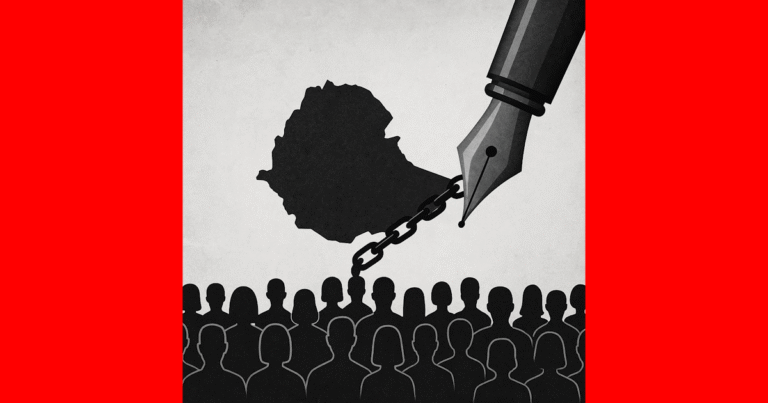
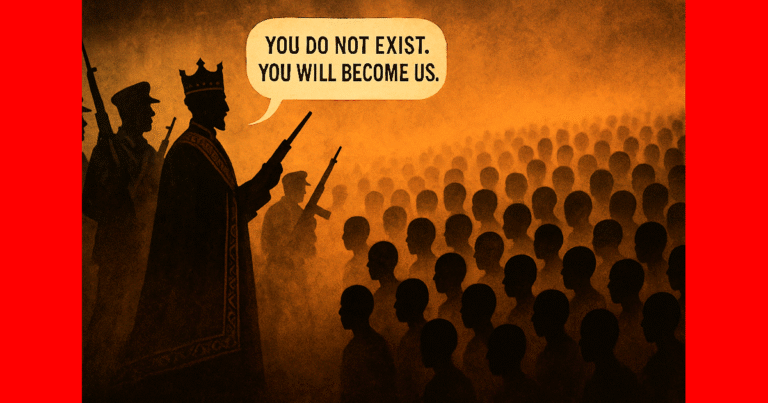
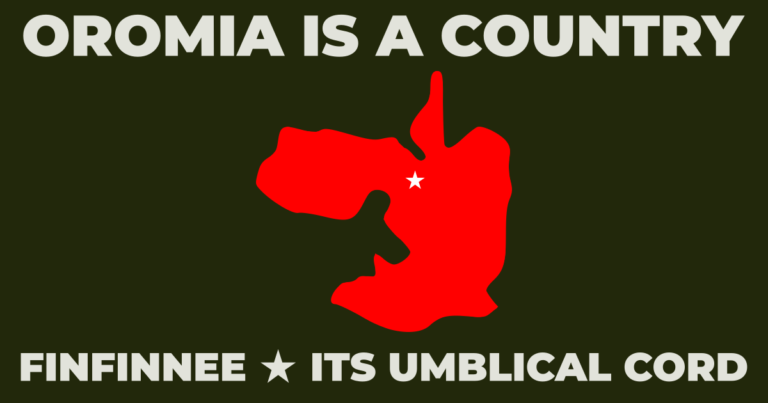
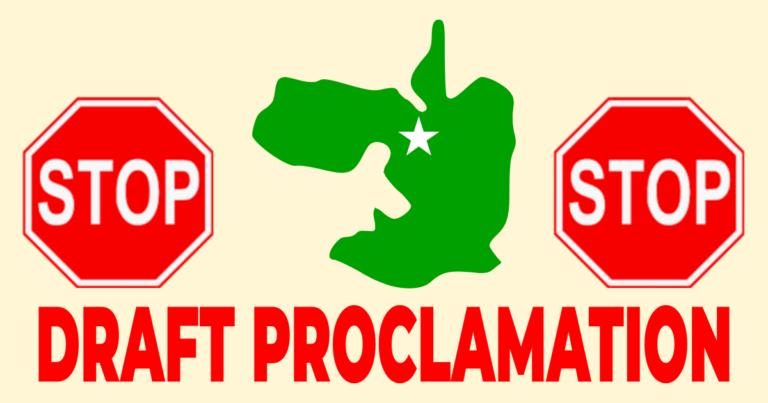
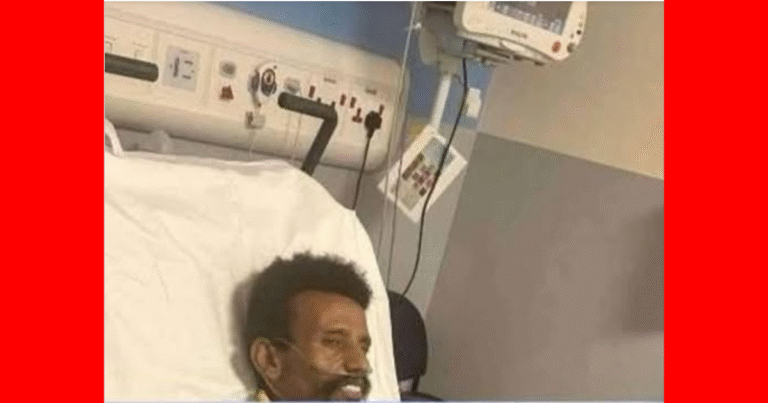
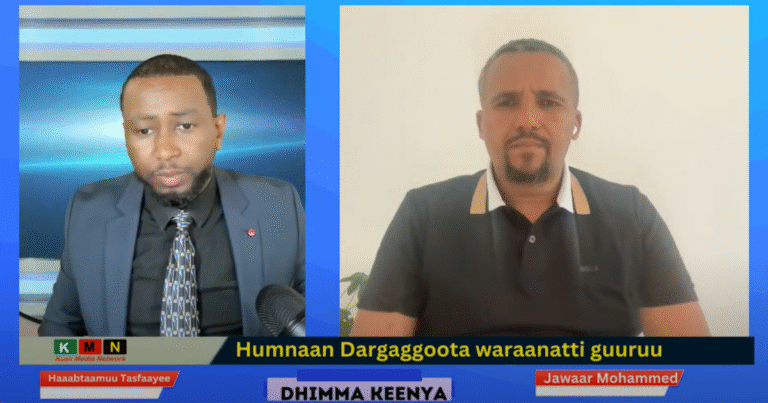
Hi there it’s me, I am also visiting this website on a regular basis, this web page
is really nice and the people are in fact sharing fastidious thoughts.